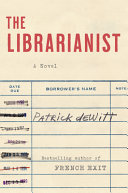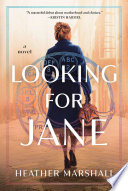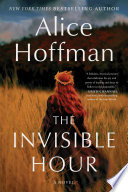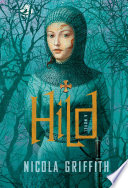Whether you’re just starting a new book club or you’re wanting to add some energy to your existing one, knowing how to find book club books that all your members will want to read and discuss can be tricky. Here are five tips to help you pick the best books for your book club.
1. Discuss what your group members don’t love
Asking “what kind of books do you love?” is a good place to start, but asking “what kind of book themes do you dislike?” gives you deeper insights. It’s revealing to understand what members don’t love—or might, in fact, really hate. It might be an entire genre, such as westerns, or something very specific, like stories set in malfunctioning space ships. It’s also helpful to understand club members’ comfort levels with books’ spicy levels (sex, swearing, and/or violence).
Book Club Pick:

The Librarianist
By Patrick deWitt
Adult Fiction
One subgenre of books that seemingly no bibliophiles object to? Books about books, libraries, bookstores, and book lovers. The Librarianist tells the story of Bob Comet, who’s just retired from his job as a librarian. An act of kindness introduces him to a senior center, where he begins to make friends despite his introverted nature. This book might spark discussions about aging, friendships, the way the past influences the present, and how the books we love impact our lives.
Or try:
The Good Sister by Sally Hepworth (thriller)
Must Love Books by Shauna Robinson (romance)
Read Dangerously: The Subversive Power of Literature in Troubled Times by Azar Nafisi (memoir)
2. Look for books that relate to contemporary buzzy issues
From politics to climate change, earthquakes to gun violence, readers can often find books relating to current events and newsworthy topics. When you read these books with your book club, your discussions will make real-world connections, both to our culture at large and to members’ personal reactions.
Book Club Pick:

Looking for Jane
By Heather Marshall
Adult Fiction
Set in Canada both in 2017 and the early 1970s, this novel looks at how the push for women’s right to choose impacts individual lives. Until abortion was legalized in Canada in 1988, an underground organization called The Jane Network helped women gain access to the healthcare they needed. The stories of three women, Angela, Evelyn, and Nancy, intertwine within the topics of unplanned pregnancy, freedom of choice, and the strength of women helping women. It will definitely lead to discussions about the Dobbs decision and women’s health issues.
Or try:
These Ghosts are Family by Maisy Card (immigration)
Our Missing Hearts by Celeste Ng (family separation)
Mobility by Lydia Keisling (climate change)
3. Try some seasonal themes
You could go with the obvious seasonal themes: a romance in February, something set on the beach in July, a cute holiday rom-com in December. Or you could think more broadly: A book set somewhere cold in January , outdoor adventure in June, or a historical novel about the Lancashire or Salem witch trials in October. Reading seasonally-thematic books might encourage connections between group members as they discuss their own seasonal traditions in connection with those explored in the book.
Book Club Pick:

Brave the Wild River: The Untold Story of Two Women Who Mapped the Botany of the Colorado River
By Melissa L. Sevigny
Adult Nonfiction
In the summer of 1938, Elzada Clover and Lois Jotter—both experts in the field of botany—set out to document the plants of the Colorado River. The river, mostly still wild save for the Hoover Dam, was considered to be the most dangerous river in the world. The resulting catalog of wildflowers, trees, bushes, and cacti the women created has been vital to later efforts at restoring the river’s ecology. Documenting the scientists’ bravery as well as their resistance to the gender norms of the time, this nonfiction book is an unusual “summer read” that will spark discussion about women in science, ecological concerns, and the achievement of ambitions.
Or try:
Winterland by Rae Meadows (January)
Spring by Ali Smith (May)
The Daylight Gate by Jeanette Winterson (October)
4. Check out books that are connected to classics
The Great Gatsby, Catch 22, Of Mice and Men, Pride and Prejudice, Fahrenheit 451: whether you loved or hated them, the classics you read in high school and college are also cultural touchpoints that authors often reimagine. Reading and discussing a retelling of a classic is an invigorating experience that might also help you expunge some of those painful 10th-grade-English-class memories!
Book Club Pick:

The Invisible Hour
By Alice Hoffman
Adult Fiction
Mia Jacob lives in the Community, an oppressive cult that forbids contact with the outside world and declares all books evil. When she discovers a copy of The Scarlet Letter, however, Mia begins to push back against her community’s rules and to imagine a different way of being in the world. The connections with Hawthorne’s classic novel might encourage discussions about other readers’ love (or even hatred!) of The Scarlet Letter, while Mia’s experiences will trigger ideas about bravery, faith, and choice.
Or try:
For Darkness Shows the Stars by Diane Peterfreund (reimagines Persuasion by Jane Austen)
Demon Copperhead by Barbara Kingsolver (reimagines David Copperfield by Charles Dickens)
The Hogarth Shakespeare series (reimagines Shakespeare’s plays)
5. Delve into History
Historical fiction about World War II is a perennial book-club favorite. But delving into the rest of history rewards readers with new knowledge and different perspectives. Whether it is Edwardian England, Cleopatra’s Egypt, or pre-Columbian America, historical fiction helps us discuss and understand more of humanity’s issues, triumphs, mistakes, and achievements.
Book Club Pick:

Hild
By Nicola Griffith
Adult Fiction
Set in seventh-century Britain, Hild explores a world that is changing from Pagan to Christian customs. Hild, the king’s youngest niece, establishes herself as the King’s seer, a dangerous position for anyone, let alone a woman, but her choices influence society nevertheless. Based on the historical figure Hilda of Whitby, this book brings Anglo-Saxon culture to life as it forces readers to question the role of religion in politics and culture.
Or try:
Homegoing by Yaa Gyasi (18th Century)
The Night Watchman by Louise Erdrich (1950s)
Beloved by Toni Morrison (Reconstruction Era)
Written by Amy S. (Outreach)




